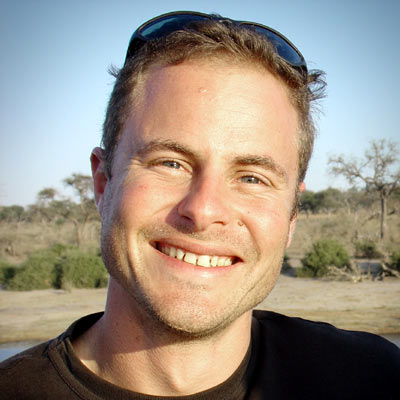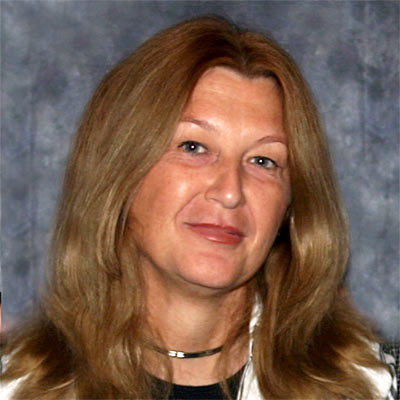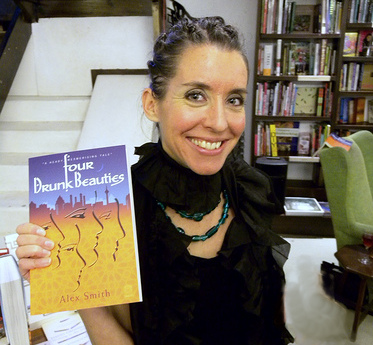The Global
Novel Writing Competition
WINNERS ANNOUNCED
Struggling to write your first novel? Tired of not knowing if your idea is any good, or how to tie up all those half-written chapters?
Well, we’ve got a solution for you. Enter the Writers College Global Novel Writing Competition.
We are searching the world for the next big thing in literary circles, and it could be YOU. Regardless of where you live in the world, you can enter. The winner receives up to 24 months of mentoring with an award-winning author to the value of $4000.00.
To enter, submit a novel proposal in any genre.
We are looking for a writer:
- with a fresh voice and style,
- a publishable concept,
- who is passionate about writing,
- with excellent grammar and punctuation skills,
- who wants professional mentoring to create a polished, finished, publishable novel.
PRIZES:
First Prize: Win the full Write a Novel Course and Advanced Novel Course (value $4000; 24 months of mentoring with an award-winning writer up to 70 000 words)
Second Prize: Win the Write a Novel Course (value $1695; 12 months of mentoring with an award-winning writer up to 25 000 words)
Third Prize: Win a critique of an instalment of your novel (10 000 words) to the value of $1000.
Congratulations to our longlisted aspirant novelists!
We are delighted to announce the longlisted writers in the Global Novel Writing Competition. Congratulations to all of you.
What made these entries stand out? Masterful writing skills. The writer’s ability to captivate readers. Stories with intriguing characters, and plots that would push these characters to the limit.
We wish you all the best as the competition progresses. Please visit this page again at the end of September for the final results.
A big well done to everyone who entered but didn’t get placed. It takes passion to write a novel and courage to share your work with a critical reader. Remember that every great author has faced setbacks along the way; these experiences are all part of being a writer. Keep writing. Keep entering competitions.
Here is our longlist, in no particular order:
The Baby Contract – by Bronwyn Ellerbeck
Half Agony/Half Hope – by Tsholofelo Dire
A Murder of Crows – by Juno Baker
Swans of War – by Diane Cursons
The Silence of Mrs Lambe – by Dianne Bown-Wilson
Democratic Union School – by Mark Grant
Hidden Island – by Mary Waters
Backlash – by Ian Coates
Nothing Between Us – by David Renton
Party Pooper – by Nick Vallera
Ill At Ease – by Judy Judge
PRIZES:
-
First Prize: Win the full Write a Novel Course and Advanced Novel Course (value $4000; 24 months of mentoring with an award-winning writer up to 70 000 words)
Second Prize: Win the Write a Novel Course (value $1695; 12 months of mentoring with an award-winning writer up to 25 000 words)
Third Prize: Win a critique of an instalment of your novel (10 000 words) to the value of $1000.
THE WINNERS
We are thrilled to announce the winners of the Writers College 2023 Novel Writing Competition.
The three winners will now receive mentorships at the Writers College where they will polish their manuscripts under the supervision of award-winning authors.
FIRST PLACE:
A Murder of Crows by Juno Baker
RUNNER-UP:
Backlash by Ian Coates
THIRD PLACE:
The Democratic Union School by Mark Grant
Congratulations on a magnificent achievement.
Read the judges’ comments on the top three stories below.
A special word of thanks to our short story judges: Alex Smith, Fiona Ingram and Andrew Salomon.
The judges’ ratings and comments for the top three stories
First Place
A Murder of Crows
by Juno Baker
Judges’ comments
- An intriguing historical side-kick character and a fraught era make this historical fiction marketable. Good specificity of details. But the pace is rushed and so much happens in small space of pages that the reader cannot fully digest the unfolding events. Watch the overuse of bracketed asides. Alex Smith
- Highly convincing in its depiction of the time period, setting and political atmosphere. This manuscript shows definite promise. Andrew Salomon
- I absolutely loved this story and was gripped from the first lines. There is a lot of telling but the dialogue mixed in makes the tale flow well. The writer draws us right in next to Jack and we like him immediately. The characters are very well done and believable. The imagery is fantastic, rich, and panoramic. The style and tone remind me of Bernard Cornwell. Very enjoyable. Fiona Ingram
The Runner-up
Backlash
by Ian Coates
Judges’ comments
- The author establishes a good sense of mystery early on but the reader doesn’t connect fully enough with Trish McGowan. The interior decorator character is fun, though, since Trish is a designer, it is hard to understand why she is referred to as McGowan and not Trish? She isn’t a detective. While the norm for detectives is to be called by their last names, this seems inappropriate for a female interior designer/decorator. Alex Smith
- The manuscript has significant promise to evolve into a fast-paced and engaging thriller. The vivid and visceral writing pulls the reader right into the story. Andrew Salomon
- I found the opening to be dramatic and gripping and wanted to read more. The writer has the style that makes a thriller ‘thrilling’. The language is terse and the sentences choppy to convey the scenes effectively to the reader. My only criticism is the number of characters all vying for the role of the main player and a plot that perhaps is more convoluted than it needs to be. However, fans of Andy McNab will enjoy this. Fiona Ingram
Third Place
The Democratic Union School
by Mark Grant
Judges’ comments
- The writing is beautiful, the setting is intriguing and the character’s layered frame of reference promises some fascinating opportunity for intertextuality. However, the storyline is convoluted and would be hard to pitch to a publisher. Even the title is somewhat bland. While the calm pace is appealing, overall it lacks a compelling reason to read – it is perhaps too close to real life and needs more of a twist to become an immersive story. Alex Smith
- Very atmospheric and the writing soon draws the reader into the story. The manuscript would benefit from more varied pacing and greater tension to keep the reader engaged once they have been hooked into the story. Andrew Salomon
- I found this both intriguing and frightening. The writer adeptly reveals the truly sinister underbelly of university/academic machinations and power plays. These remind the reader of the jockeying for influence and power even within the supposedly hallowed setting of an academic establishment. David is almost a lens through which we perceive the other characters. The writer creates wonderful descriptions of the setting and people. Fiona Ingram
Deadline:
31 July 2023
Shortlist Announced:
31 August 2023
Winners Announced:
30 September 2023
THE JUDGES:

Fiona Ingram
Fiona Ingram [BA Hons (Natal), MA (Wits)] is a multi-award winning author of adult and children’s fiction. She has written eight historical romances (published by USA publisher Bublish), including Married at Midnight, The Wayward Miss Wainwright and Lord Blackwood’s Valentine Ball.
Her interest in myths and legends, ancient history and travel led to her writing the multi-award winning The Secret of the Sacred Scarab. This is the first instalment of her children’s adventure series, Chronicles of the Stone. Fiona has now completed Book Four in the series. Through her novels, she takes youngsters all over the world on amazing adventures.
She is also an animal rights advocate and writes animal rescue stories.
Fiona tutors the Write a Novel Course at the Writers College.

Andrew Salomon
Andrew Salomon is an award-winning author. His debut novel Tokoloshe Song was shortlisted for the Terry Pratchett First Novel Award.
Additionally, his short fiction has been shortlisted for the Commonwealth Short Story Prize. He has also received the PEN Literary Award for African Fiction and the Short.Sharp.Stories Award.
Andrew is the author of the young adult thrillers The Chrysalis and Wonderbear. His latest novel is the dark fantasy thriller The Equilibrist. He completed an MA at the Institute for Archaeology at University College London. Some of his most memorable experiences have been at rock painting and engraving sites in subterranean caves and shelters across the world. These often find their way into his fiction.
Andrew tutors the Write a Novel Course at the Writers College.

Sonny Whitelaw
Sonny Whitelaw has enjoyed a successful career as a writer for over 30 years. Her work as a photojournalist has appeared in dozens of international magazines, including ‘National Geographic’. She won a Draco Award for her first novel, ‘The Rhesus Factor’, and all eight of her novels, including five based on the television series ‘Stargate’, have been international bestsellers. A qualified adult educator with an MA in Creative Writing, Sonny taught writing courses to adults and teenagers in Sydney, Brisbane and Melbourne. In 2008, she moved with her teenage son to a small lifestyle property in Oxford, Canterbury. When she’s not having an enormous amount of fun exploring the South Island, Sonny splits her time between researching and writing scientific reports, editing fiction and non-fiction manuscripts, and working on her own exciting young adult science fantasy series called ‘The Runes of Creation’.
Sonny tutors the Write a Novel Course at the Writers College.

Alex Smith
Alex Smith is the author of two magic real novels Algeria’s way and Four Drunk Beauties, two YA fantasy novels, Agency Blue and Devilskein & Dearlove, a memoir, Drinking from the Dragon’s Well, about teaching English in Wuhan, China, and a series of middle grade novels translated into African languages and prescribed as set works in South African schools.
Her short stories have been published in journals and anthologies in the UK, South Africa, Ireland, Germany and Sweden. She has won the Nielsen Booksellers Choice Award and the Sanlam Youth Literature Award. Alex was shortlisted for The Caine Prize for African Writing, was a finalist in the NLDTF/PANSA Festival of Contemporary Theatre Readings and, on the recommendation of author Andre Brink, was a candidate in the Rolex Mentor & Protégé Arts Initiative.
Alex tutors the Write a Novel Course at the Writers College.
The Write a Novel Course
COMPETITION RULES:
- Entry is free.
- All submissions and enquiries can be sent to Nichola Meyer: Nichola@nzwriterscollege.co.nz
- The competition is open to any writer living anywhere in the world.
- Entrants must submit a full novel proposal. This includes a short cover letter in the body of the email, as well as one sample chapter in the body of the email. The cover letter can tell us a bit about your novel and you as the author.
- The proposal must be attached as one Word document or PDF, including the first three chapters (or up to 6000 words) of the novel, and a rough chapter synopsis of two to three pages briefly outlining the contents of the entire novel. As we teach you how to put together a professional proposal on the course, we aren’t evaluating the actual proposal, but rather, the quality of your novel and your writing. We don’t expect perfection; creating a strong proposal is something that we work on in our courses.
- Only one proposal per entrant is allowed.
- Entries can be in any genre (sci fi, spec fic, crime, romance, historical novel, humour, memoir, literary, etc).
- We only accept entries written in English.
- The competition closes at midnight on 31 July 2023. The longlist will be published by 31 August, and the winners announced and displayed on our website on 30 September 2023.
- Prizewinners will be notified via email as well as on our website; please ensure you supply a valid email address with your entry.
- Prizes will not be transferable into cash.
- Stories must not have been previously published. Entrants must own the copyright to the story submitted.
- Writers retain full copyright over their work.
- All entries will be kept in the strictest confidence and deleted once the competition is over.
- The judges’ decision is final; no disputes will be entered into.
- If your entry has not been acknowledged within three working days, please contact us as your email may have got lost in transit.
- Absolutely no generative AI to be used (ChatGPT etc.). If we deem stories were not written by a human they will be excluded, and the author banned from entering all further competitions with us.
- The Writers College reserves the right to extend the competition deadline or cancel the competition should the entries not be of publishable quality or up to the required standard.
SEE PAST WINNING ENTRIES HERE:
2022:
Strange Bird – by Justine Loots (First Place)
Taint the Innocent – by A.D. Anderson (Runner-Up)
Elicia – by Dorotea Saputo (Third Place)
2021:
Fracture – by Lynette Hagenson (First Place)
Mother of Exiles – by Jeffery Dingler (Runner-Up)
Morwong Island – by Juliet Wiseman (Third Place)
The Short Story Writing for Magazines Course
ENTRY FORMAT:
- Only e-mail submissions are acceptable. The cover letter and a sample chapter must appear in the body of the email. The proposal (first three chapters/6000 words and a chapter synopsis) must be attached as a Word or PDF document.
- Mark your email clearly with the subject line: Writers College Global Novel Writing Competition.
- Do not include your name on any page of your manuscript or chapter synopsis. All entries will be judged blind.
- Use a font such as Arial or Times New Roman, size 12 or more. Use 1.5 or double spacing between lines.
- Make sure your story has been edited and polished. Download Grammarly (the free or paid version) if you need extra help with grammar and punctuation.
Subscribe to Our Newsletter
Struggling to write your first novel? Tired of not knowing if your idea’s any good, or how to tie up all those half-written chapters?
Well, we’ve got a solution for you.
The Writers College Global Novel Writing Competition is open for entries.
We are searching the world for the next big thing in literary circles! And it could be YOU.
Regardless of where you live in the world, you can enter. Win up to 24 months of mentoring with an award-winning writer to the value of $4000.00.
We are looking for a writer:
- with a fresh voice and style,
- a publishable novel concept,
- seriously passionate about writing,
- with excellent grammar and punctuation skills,
- who wants professional mentoring to create a polished, finished, publishable novel.
To enter, submit a short novel proposal in any genre before 31 July 2022.
